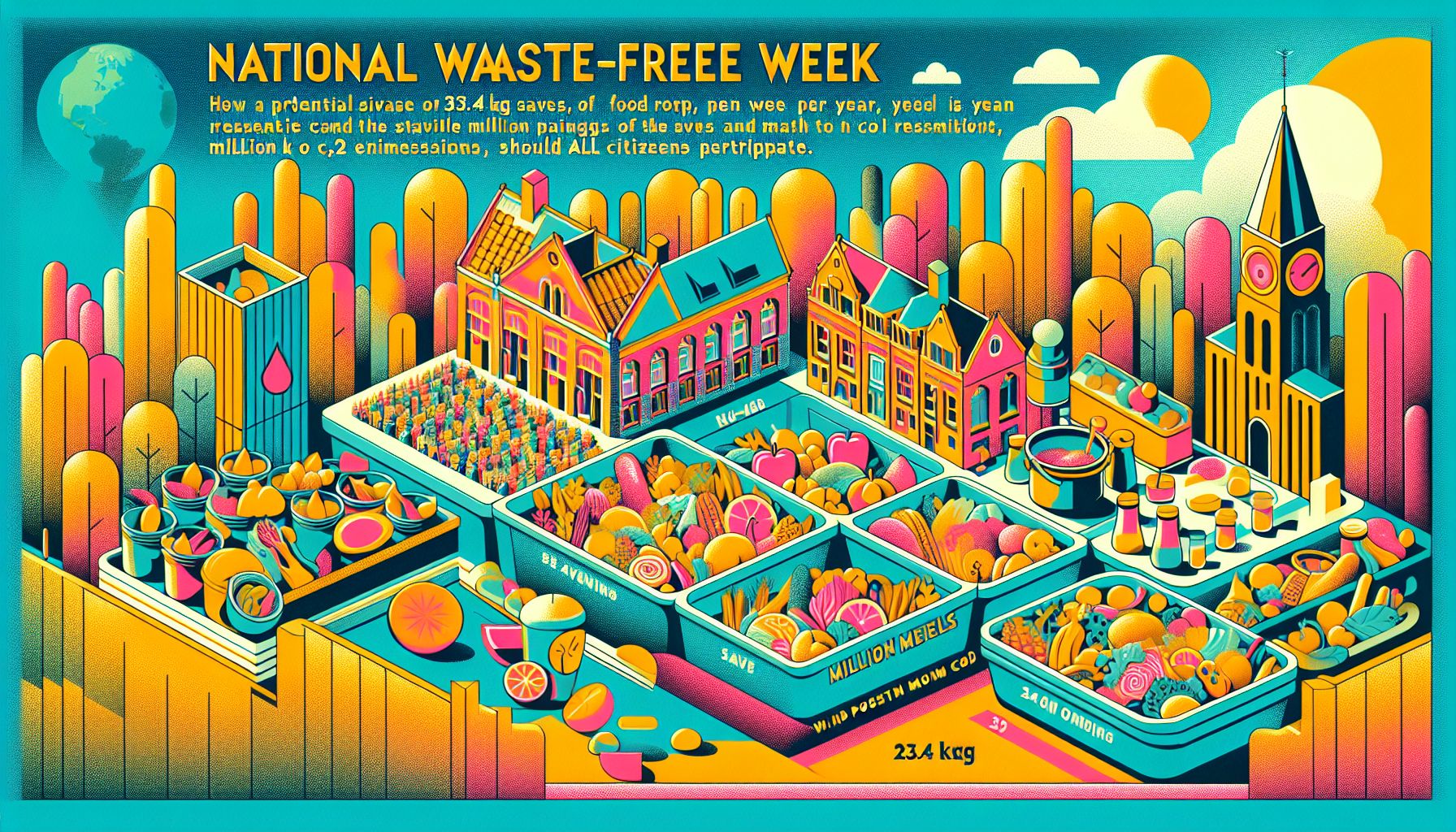National Waste-Free Week Aims to Slash Food Waste in the Netherlands

Netherlands, Friday, 6 September 2024.
The sixth annual Waste-Free Week, starting September 9th, targets reducing the 33.4 kg of food wasted per person annually in the Netherlands. This initiative could save 23 million meals and 34 million kg of CO2 emissions if all Dutch citizens participate, highlighting the significant environmental impact of food waste reduction.
Engaging Stakeholders and the Public
The Foundation Together Against Food Waste, along with AgriFood Capital and other stakeholders, aims to create a broad coalition of businesses, local governments, and citizens to tackle food waste. This year’s focus is on inventory management, encouraging people to be more aware of what they have at home to reduce unnecessary purchases and waste. Supermarkets across the Netherlands will distribute tips and tools to help consumers manage their food supplies more efficiently[1].
Activities and Events
Throughout the week, a variety of events will be held to engage the community. Local workshops, three-course waste-free dinners with live music, and educational quizzes and masterclasses in schools are planned to raise awareness and provide practical solutions for reducing food waste. National caterers will also participate by highlighting food waste reduction in their services across hundreds of locations[1].
Kick-Off Event
The week will kick off on Monday, September 9th, at 11:00 AM with a festive event featuring Toine Timmermans, Director of Together Against Food Waste, and Petra Verhoef, Director of the Nutrition Center. Representatives from major partners like Albert Heijn, Jumbo, Greendish, Smaaklessen, and Too Good To Go will discuss their plans for the week. The event can be attended online, and participants are encouraged to have green, blue, yellow, and white objects nearby to join in the activities[1].
The Broader Impact of Food Waste Reduction
Reducing food waste is not just about conserving resources and saving money; it has a profound environmental impact. According to the United Nations, food waste accounts for a significant portion of global greenhouse gas emissions. By reducing food waste, we can cut down on these emissions and alleviate some of the pressure on our planet’s resources[2].
Case Studies in Food Preservation
Food preservation is a key strategy in combating food waste. Traditional methods such as canning, drying, and fermenting have been used for centuries to extend the shelf life of food. Modern techniques, including vacuum packing and high-pressure processing, are also effective in reducing food spoilage. For instance, Nicolas Appert’s invention of canning and Louis Pasteur’s development of pasteurization have been instrumental in improving food safety and reducing waste[3].
Global Efforts and Innovations
Innovations in food preservation and waste management are happening worldwide. In Nigeria, efforts are being made to improve post-harvest storage to reduce the 40% of food production that is wasted annually. Similarly, McDonald’s has made strides in reducing packaging waste by sourcing primary guest packaging from renewable, recycled, or certified materials. Their initiative aims to achieve 100% sustainable packaging by 2025[4].
The Role of Education and Community Engagement
Educational institutions also play a crucial role in this initiative. Loyola University Chicago’s School of Environmental Sustainability, for example, is actively involved in training future environmental leaders and engaging students in sustainability projects. Their efforts demonstrate how education can drive significant changes in community behavior towards food waste[5].

